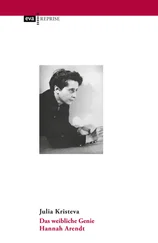
On hearing me enthuse about the droll letters Teresa sent to her confessors (those secret or semiavowed loves, who no matter how erudite she often chided for their lack of what she called “experience”) my friend Dr. Baruch teases me: “Our Freudian Sylvia, lapsing into Catholicism, eh?”
Not a bit. Or no more so than Leibniz, whose company is nothing to be ashamed of. Indeed, the great rationalist who aspired to overcome the rifts within Christianity took La Madre seriously in his Discourse on Metaphysics , describing her as “a person of noble mind whose sanctity is greatly revered [and who] used to say that the soul must often think as if there were only God and it in the world. Now nothing makes immortality more completely comprehensible.” 31In a letter to André Morell, he is explicit about his debt to her: “And as for St. Teresa, you are right to esteem her works. One day I found in them this fine thought: that the soul ought to conceive things as if there were only God and itself in the world. This thought gives rise to an idea which is significant even in philosophy, and I have made good use of it in one of my hypotheses.” 32
Teresa’s soul incorporating its God, consubstantial with the Other: might this be the only possible immortality? Enough, surely, to mark down the Carmelite saint, the inspirer of Bernini, as the precursor of the infinite monad and Leibniz’s infinitesimal calculus!

Did I mention my former partner? I finally erased him altogether, it’s true. It’s all so long ago. We were fifteen in May 1968, we manned the barricades on rue Claude-Bernard, discovered sex and drugs at the Odéon, experimented with the whole gamut of erotic fantasy and power games. His name? Can’t remember, not a clue. Honestly. My friends, the few I still have from those days, are the same: they say “your ex,” “her ex.” My ex left no trace of himself in me, good or bad, which might seem strange for a psychologist, or perhaps it just shows how thoroughly I was psychoanalyzed. He claimed to like women and hate children; he made love like — and with — anybody else, but preferred me for sleeping with. When we were together he’d cross the road to avoid greeting an acquaintance, male or female. Was he ashamed of me? Ashamed of himself? Given that everything was or ought to be transparent, this hole-and-corner stuff made no sense to me, I couldn’t see why we had to play at secret lovers. So I asked him, I nagged him about it, and he’d fly into a temper and disappear for days. We carried on that way for ten years or so, I wanted to be up to date, but I was just a masochist. One day he didn’t come back. One of our friends, mine that is, I never met his, got some news via a mutual contact. “Seems your ex opened a holiday club in Thailand, can’t you just picture it! Did you know? I always thought he was in computing.” I could picture it alright, but I hadn’t believed in anything for quite a while. I’d been depressed. A spell in the Sainte-Anne psychiatric hospital, a lengthy analysis, the Duras book, the psychology degree, I did whatever it took to delete the whole thing. You can hiss as much as you like, the fact is that I came out unscathed, smooth as a pebble.
Love, the tritest business of our whole lives, as my mother used to say in evocation of her favorite authoress — Colette or Sagan? — love had ditched me for good. Free of it at last, I find life nicely open and varied, full of surprises. My patients offer unexpected gifts, my dear colleague Baruch buoys me up with her businesslike approval, and occasional affinities with the male of the species afford me occasional pleasures of the kind known as physical. With 9/11 and the rise of Islamic terrorism, I realized that religion is the only world — besides those of Paul and Élise — that can still rouse me to passion. For better and for worse.
It’s late, I’m in my apartment on Place d’Italie gazing out at the city lights. My father always loved this great window; the view would relax him after a strenuous day. I’m getting supper ready and listening to the news: from one folly to the next, Sky News, CNN, on goes the world.
The phone rings. It’s Zone Books.

Bruno doesn’t call very often, and why should he: sales of my Duras book were modest, except abroad. “There’s a Duras cult in the States, what do you expect, all those depressed women sucked in by feminism…Sorry, did I upset you?” Of course not: I wouldn’t kick up a fuss with my publisher. All he’s asked after that is to meet for a drink every two or three years, in case there’s something to be got out of the dingbat psychology circles I now move in, and which include Zone customers. Invariably he draws a blank: I’m not the mole he’s after. Let’s do it again soon? I’ll call you. That would be lovely…
Meanwhile, Zone switched niches. Seeing as everybody else was writing and publishing fiction, Zonabend slashed the literary list to the bone and went into contemporary nonfiction. “Essays are such a catch-all, ever since Montaigne and Rousseau, you know, essays have been great sellers.” But without spurning his old flames.
“The time has come for you to take up your pen once more, my dear! I need you, yes I do, I’m serious, surely you realize you’re cutting-edge? Come now, I’ve always known you had flair. Value crisis! Apocalypse now! The new sicknesses of the soul! How to become a suicide bomber so as not to go crazy when you’re crazy already! You are at the total front line of all that, my dear Sylvia, and plus you’ve got the inside story, with those fruitcakes of yours! You hold the key to the enigma, on the deep-down intimate level, I mean.”
Bruno is trying to flatter me: he dreams of a White Apocalypse Mark 2. I’m thrown, I’m not on the same wavelength as when he published me.
“Do you hear what I’m saying? Today’s Anne-Marie Stretters, Lol V. Steins, what are they doing? In France they’re singing on shows like Star Academy , or making a fortune as high-end escorts, like the one who tripped up Daniel Stern, what was her name? Anyway. So, think about it: suppose those same rather sordid heroines are Muslims, what choices do they have, between the Pill and the chador? Suicide bombers in the making. I’m rushing the transitions, ok, but here’s your theme: apocalypse, feminine case. What say you?”
“You mean the Hiroshima of love would only get more devastating?” I’m alluding to the subtitle of my book, which Zonabend has evidently forgotten. “And I’m supposed to be the expert in the field?” I say, feigning jokiness.
“The Hiroshima of love, excellent!” Bruno can already see me on TV, guesting on the Guillaume Durand show, or, why think small, on prime time with Patrick Poivre d’Arvor.
“I don’t know, but I do think there can be religious women in love. I happen to be reading one now who talks about nothing else.” Teresa, by default , again.
“Really? Well, why not…Let’s see. Not Diderot’s nun, she’s been done. A fundamentalist? A mystic?”
“A writer.”
“Not another writer! Ok, do me a synopsis.” My publisher goes quiet all of a sudden. He doesn’t seem very excited about my saint. “Religion is always a mystery for you psychologists as well, isn’t it? So that’s it…I’ll trust you. I want it. I’ll send the contract. And get your skates on.”
Bruno’s such a bore. I don’t feel like ticking boxes. I am steeped in Teresa, her faith and madness speak to me, and the faith I never had may not be so far distant. As for madness, well…A bonfire under my white apocalypse?
Читать дальше













